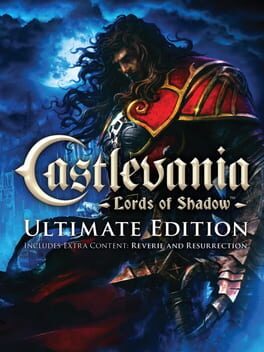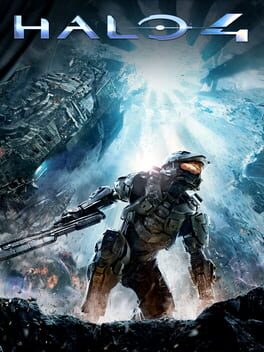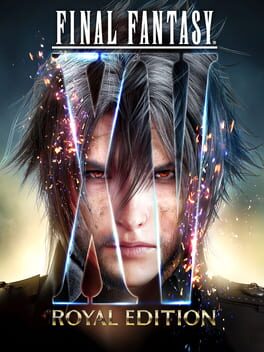homie_deez
6 Reviews liked by homie_deez
Yoko Taro’s Drakengard (2003) is an extremely contentious game, a love it or hate it ordeal in which some are swayed by its abrasive and transgressive nature, while others will vehemently cast it aside, claiming it was simply a terrible experience. My own opinions aside, what Drakengard tells us is that Yoko Taro is a video game creator with the propensity to sacrifice enjoyment at times, pushing players into frustrating and mindless scenarios, all in order to prioritise the point he’s trying to get across, and NieR Replicant ver.1.22474487139... (2021) is no exception. ver.1.22 is a remaster of NieR RepliCant (2010), a game I have never played, but what I do know is that the original Replicant, and therefore the modern one, is heavily inspired by Yoko Taro’s post 9/11 commentary, an event that changed much of his thinking. With this inspiration, Replicant tells a story about the importance of acknowledging different perspectives and encouraging communication, tightly knitted together through its unconventional structural approach in regards to storytelling.
Much of NieR Replicant is designed to play with players’ preconceived notions of the JRPG genre, deliberately conforming to long-standing genre tropes only to later subvert them down the line for great effect. Everything about the entire game just screams RPG from top to bottom, from the setting, to the level and item progression, down to much of the story itself. Our protagonist, Brother Nier, lives in a quaint, grassy and reclusive village with his sick little sister, Yonah, and in the pursuit of her medicine, and resources required to live day-to-day, he garners a reputation amongst his community as someone who will accept any task, no matter how mundane or trivial. The game begins with no direction in regards to the overarching plot, we start by going on standard fetch quests for the townsfolk, both to help them out and also earn some money for our troubles, all while the game uses it to introduce and ease players into its mechanics. It’s all very run-of-the-mill, and yet it was never meant to be anything but. The narrative leans into these ideas even further, guising the much bleaker true nature of the story under the framework of a tired and stereotypical hero’s journey with a clear cut antagonistic force and plainly defined sides of good and evil, pretty simple right?
While Route A very much operates wholly embracing this thinly veneered exterior, that's all it is, an exterior, telling a story of found family learning to love themselves and finding hope in a world on the verge of dying out, but that's just on the surface. Within the context of NieR Replicant, Route A is ultimately a test, a test to see how far we are willing to believe in what is merely shown in front of us, under the confines of a singular perspective, all told in a way only a video game could. The transition from Route A to Route B in which the proverbial rug is swept from under our feet is therefore what truly defines Replicant, and where its themes that stem from Yoko Taro's post 9/11 commentary come to fruition.
“You have your own motives. Your own desires. And we have ours. I fear it really is just that simple.”
Replicants' philosophy can be summed up by a quote from Yoko Taro himself, in which he says: “You don’t have to be insane to kill someone. You just have to think that you’re right”. Perspective is consequently at the heart of NieR Replicant, a theme so seamlessly integrated into every facet of the game born out of its unique use of its New Game+ structure. To chalk up any characters actions in this game into a black and white judgement of good or evil would be fallacious, for each character is driven by their own personal beliefs and motivations that have been shaped by years of hardship - what one party sees as an imperative good another party sees as an irrefutable evil. This amalgamation of varying perspectives and viewpoints reaches a boiling point in which nobody can claim to have the moral high ground, nobody is willing to budge, and the addition of miscommunication blends everything into an unrecognisable situation in which nobody has any idea what truly transpired in the first place to lead to this, everyone just believes that they are right. It may seem like a fairly basic commentary on moral relativity, one in which there are no rights and wrongs, but simply just people doing what they themselves believe is right, and while that may be true, what really drives this point home is the cohesive and concise execution through the use of its unorthodox structure, the undoing of the tropes Replicant pretends to conform to, how all of the main plot beats feed into this central idea, it all comes together in such a well-crafted way that punches you in the gut and leaves you crying on the floor afterwards.
Not content with just subverting extremely common JRPG tropes, Replicant also attempts to take shots at other elements of the genre, such as sidequests, although these jests come across as nothing more than tasteless. Frequently criticised and described as tedious, Replicant's sidequests are self-aware in their seemingly intentional mundanity, with Weiss often musing, in his typical dramatic style, about how he “would enjoy receiving a quest that can be solved in the general vicinity of the asker…”. This is criticism directed towards video game quests that force you to cover long distances, going back and forth monotonously in order to fully complete them, which can be a fair point to make; the issue is that Replicant only succeeds in poking fun at this flaw. It’s self-indulgent in its humour, failing to follow through on its satire, the game carrying on as if this joke never happened, as every sidequest after it is still designed similarly: you fetch items and backtrack between locales for information in order to proceed. With no resolution to its intent, it fails to convey anything meaningful. Some people also interpret sidequests as laborious as a means for the game to ridicule you for not concentrating on the main story, which should be seen as the utmost priority, although this view of them falls flat once you realise that the main story itself has moments that serve as detractors from our central objective, moments the cast willingly participate in. The shortcomings of sidequests is saddening, as there are a handful of genuinely solid ones that lend themselves to the games themes, but they’re so few and far between that they aren’t able to offset the rest.
Looping back around the aforementioned Drakengard, one avenue that it explores is that of the glorification of video game violence, an idea that also takes root deep within Replicant, best illustrated by the final route of the game. By this point, for most, the gameplay has worn thin, we’ve memorised enemy attack patterns and mentally mapped out the quickest route to the final boss, enemies don’t scale between successive routes so the combat is at its most mindless, story beats see themselves recycled yet again with far less difference than Route B to Route A. With this in mind, in my opinion the perpetual open question of this route is: should you be having fun? Replicants routes are designed so that any one of them can serve as the endpoint of the story; if someone is satisfied with Ending A, they can simply let the story rest there. However for most of us, we keep going, not satiated until we’ve seen every ending in the hopes we’ll land on a better one. Fully aware of the destruction that lies in our wake and its consequences, do we deserve to enjoy ourselves?
It’s certainly a bold move, one that’s often confused with the idea that this is an “intentionally bad” stylistic choice, but I don’t personally believe a game pushing itself into such territory is an automatic hallmark of bad game design, there’s an intention behind it to foster discussion and appeal to the player. These choices are what make Yoko Taro's works so divisive, fundamentally some people will not be able to enjoy the 3rd playthrough no matter what, while other people like me are fascinated by it. I understand you could apply this to any element of any game, but in the case of Replicant which is so renowned for its unique game and storytelling choices, I think it’s a bit more prevalent here.
NieR Replicant ver.1.22474487139… is an experience able to be viewed and picked apart from so many different perspectives, and not all the ideas will land for everyone, making it a hard game to recommend without some caveats, but in spite of that I still think it comes out on top. My review doesn’t even cover all the games bases, such as its commitment to varying camera angles mixed with genre-switching gameplay, its fantastic main cast dynamic between Nier, Kaine and Emil, or how it succeeds in adding texture to all of its side characters. Despite the flaws I found, it’s a game that resonated with me so much along with its ideas, that I can look past them all and say I love it, and that even if you don’t like aspects of it, coming to understand the intention and purpose behind them might change your outlook a little.
Much of NieR Replicant is designed to play with players’ preconceived notions of the JRPG genre, deliberately conforming to long-standing genre tropes only to later subvert them down the line for great effect. Everything about the entire game just screams RPG from top to bottom, from the setting, to the level and item progression, down to much of the story itself. Our protagonist, Brother Nier, lives in a quaint, grassy and reclusive village with his sick little sister, Yonah, and in the pursuit of her medicine, and resources required to live day-to-day, he garners a reputation amongst his community as someone who will accept any task, no matter how mundane or trivial. The game begins with no direction in regards to the overarching plot, we start by going on standard fetch quests for the townsfolk, both to help them out and also earn some money for our troubles, all while the game uses it to introduce and ease players into its mechanics. It’s all very run-of-the-mill, and yet it was never meant to be anything but. The narrative leans into these ideas even further, guising the much bleaker true nature of the story under the framework of a tired and stereotypical hero’s journey with a clear cut antagonistic force and plainly defined sides of good and evil, pretty simple right?
While Route A very much operates wholly embracing this thinly veneered exterior, that's all it is, an exterior, telling a story of found family learning to love themselves and finding hope in a world on the verge of dying out, but that's just on the surface. Within the context of NieR Replicant, Route A is ultimately a test, a test to see how far we are willing to believe in what is merely shown in front of us, under the confines of a singular perspective, all told in a way only a video game could. The transition from Route A to Route B in which the proverbial rug is swept from under our feet is therefore what truly defines Replicant, and where its themes that stem from Yoko Taro's post 9/11 commentary come to fruition.
“You have your own motives. Your own desires. And we have ours. I fear it really is just that simple.”
Replicants' philosophy can be summed up by a quote from Yoko Taro himself, in which he says: “You don’t have to be insane to kill someone. You just have to think that you’re right”. Perspective is consequently at the heart of NieR Replicant, a theme so seamlessly integrated into every facet of the game born out of its unique use of its New Game+ structure. To chalk up any characters actions in this game into a black and white judgement of good or evil would be fallacious, for each character is driven by their own personal beliefs and motivations that have been shaped by years of hardship - what one party sees as an imperative good another party sees as an irrefutable evil. This amalgamation of varying perspectives and viewpoints reaches a boiling point in which nobody can claim to have the moral high ground, nobody is willing to budge, and the addition of miscommunication blends everything into an unrecognisable situation in which nobody has any idea what truly transpired in the first place to lead to this, everyone just believes that they are right. It may seem like a fairly basic commentary on moral relativity, one in which there are no rights and wrongs, but simply just people doing what they themselves believe is right, and while that may be true, what really drives this point home is the cohesive and concise execution through the use of its unorthodox structure, the undoing of the tropes Replicant pretends to conform to, how all of the main plot beats feed into this central idea, it all comes together in such a well-crafted way that punches you in the gut and leaves you crying on the floor afterwards.
Not content with just subverting extremely common JRPG tropes, Replicant also attempts to take shots at other elements of the genre, such as sidequests, although these jests come across as nothing more than tasteless. Frequently criticised and described as tedious, Replicant's sidequests are self-aware in their seemingly intentional mundanity, with Weiss often musing, in his typical dramatic style, about how he “would enjoy receiving a quest that can be solved in the general vicinity of the asker…”. This is criticism directed towards video game quests that force you to cover long distances, going back and forth monotonously in order to fully complete them, which can be a fair point to make; the issue is that Replicant only succeeds in poking fun at this flaw. It’s self-indulgent in its humour, failing to follow through on its satire, the game carrying on as if this joke never happened, as every sidequest after it is still designed similarly: you fetch items and backtrack between locales for information in order to proceed. With no resolution to its intent, it fails to convey anything meaningful. Some people also interpret sidequests as laborious as a means for the game to ridicule you for not concentrating on the main story, which should be seen as the utmost priority, although this view of them falls flat once you realise that the main story itself has moments that serve as detractors from our central objective, moments the cast willingly participate in. The shortcomings of sidequests is saddening, as there are a handful of genuinely solid ones that lend themselves to the games themes, but they’re so few and far between that they aren’t able to offset the rest.
Looping back around the aforementioned Drakengard, one avenue that it explores is that of the glorification of video game violence, an idea that also takes root deep within Replicant, best illustrated by the final route of the game. By this point, for most, the gameplay has worn thin, we’ve memorised enemy attack patterns and mentally mapped out the quickest route to the final boss, enemies don’t scale between successive routes so the combat is at its most mindless, story beats see themselves recycled yet again with far less difference than Route B to Route A. With this in mind, in my opinion the perpetual open question of this route is: should you be having fun? Replicants routes are designed so that any one of them can serve as the endpoint of the story; if someone is satisfied with Ending A, they can simply let the story rest there. However for most of us, we keep going, not satiated until we’ve seen every ending in the hopes we’ll land on a better one. Fully aware of the destruction that lies in our wake and its consequences, do we deserve to enjoy ourselves?
It’s certainly a bold move, one that’s often confused with the idea that this is an “intentionally bad” stylistic choice, but I don’t personally believe a game pushing itself into such territory is an automatic hallmark of bad game design, there’s an intention behind it to foster discussion and appeal to the player. These choices are what make Yoko Taro's works so divisive, fundamentally some people will not be able to enjoy the 3rd playthrough no matter what, while other people like me are fascinated by it. I understand you could apply this to any element of any game, but in the case of Replicant which is so renowned for its unique game and storytelling choices, I think it’s a bit more prevalent here.
NieR Replicant ver.1.22474487139… is an experience able to be viewed and picked apart from so many different perspectives, and not all the ideas will land for everyone, making it a hard game to recommend without some caveats, but in spite of that I still think it comes out on top. My review doesn’t even cover all the games bases, such as its commitment to varying camera angles mixed with genre-switching gameplay, its fantastic main cast dynamic between Nier, Kaine and Emil, or how it succeeds in adding texture to all of its side characters. Despite the flaws I found, it’s a game that resonated with me so much along with its ideas, that I can look past them all and say I love it, and that even if you don’t like aspects of it, coming to understand the intention and purpose behind them might change your outlook a little.
I don't get why many people dislike this game.
Combat is so much fun, and the levels are gorgeous and full of variety, with nice puzzles mixed into the formula. The presentation and graphics look awesome and voice acting is superb.
As a long time Castlevania fan, I appreciate they tried the "God of War gameplay" for a more action oriented game.
Pretty good indeed; a lot more than I expected.
Combat is so much fun, and the levels are gorgeous and full of variety, with nice puzzles mixed into the formula. The presentation and graphics look awesome and voice acting is superb.
As a long time Castlevania fan, I appreciate they tried the "God of War gameplay" for a more action oriented game.
Pretty good indeed; a lot more than I expected.
Halo 4
2012
A real diamond in the rough. If you are even slightly interested in this game just do yourself a favor and play it. It´s not a perfect game, on the contrary, it´s a rather flawed one, but it´s an experience greater than the sum of its parts. A beautiful story told rather oddly, the pacing is off and is rather disjointed by nature of its release and its structure. The movie is pretty good and should have been bundled with the game somehow, the short anime series can be found on Youtube and is a great introduction to the best aspect of this game and what has hooked me so. The main cast. I would just die for these boys.
What this game does so well is put you in the shoes of a group of friends, trying to have some fun along the way in a path filled of adversities, and it manages to build such a complete picture of these characters as fully formed people as I have rarely seen achieved in other games. It´s the sense of having embarked on a journey, having seen them grow and evolve together, what makes this game such a memorable experience.
The open world element and its design, just most level design in general, and combat as well, is rather simplistic, and it will depend on how much you enjoy each of these aspects how much you´ll want to engage with the side content, and later end game. The world is quite beautiful but rather empty and traversing it is quite a pain after a while. Dungeons look great and each have a distinct and epic style but are rather linear and end up feeling too similar after having completed a couple. Combat is an interesting aspect, it´s extremely simple, constantly looking to reach epic heights, but it mostly ends up feeling janky, unpolished and uninteresting. There´s nothing epic about pressing one button and the enemies being damage sponges. Side content can become dull very quick once you notice that side-quests are just checking things off lists and doing chores for non-characters. The “epicness” though comes from the visuals and the music. It still looks gorgeous in every level, the art design is wonderful, and the sense of scale it manages to convey is outstanding. The musical score is just on another level altogether.
The DLC “episodes” are must plays. I wish they had found the way to better integrate them into the main game in this “Royal” or “Windows” editions. Other than that, they serve as condensed and streamlined scenarios that showcase the best things the main game has to offer all while further developing these wonderful characters and their stories.
I nearly cried at the end. Highest praise I can give.
What this game does so well is put you in the shoes of a group of friends, trying to have some fun along the way in a path filled of adversities, and it manages to build such a complete picture of these characters as fully formed people as I have rarely seen achieved in other games. It´s the sense of having embarked on a journey, having seen them grow and evolve together, what makes this game such a memorable experience.
The open world element and its design, just most level design in general, and combat as well, is rather simplistic, and it will depend on how much you enjoy each of these aspects how much you´ll want to engage with the side content, and later end game. The world is quite beautiful but rather empty and traversing it is quite a pain after a while. Dungeons look great and each have a distinct and epic style but are rather linear and end up feeling too similar after having completed a couple. Combat is an interesting aspect, it´s extremely simple, constantly looking to reach epic heights, but it mostly ends up feeling janky, unpolished and uninteresting. There´s nothing epic about pressing one button and the enemies being damage sponges. Side content can become dull very quick once you notice that side-quests are just checking things off lists and doing chores for non-characters. The “epicness” though comes from the visuals and the music. It still looks gorgeous in every level, the art design is wonderful, and the sense of scale it manages to convey is outstanding. The musical score is just on another level altogether.
The DLC “episodes” are must plays. I wish they had found the way to better integrate them into the main game in this “Royal” or “Windows” editions. Other than that, they serve as condensed and streamlined scenarios that showcase the best things the main game has to offer all while further developing these wonderful characters and their stories.
I nearly cried at the end. Highest praise I can give.




